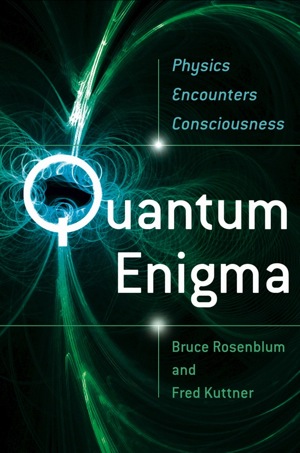
In recent years, physicists, philosophers, computer engineers, and even biologists have expanded our realization of the significance of quantum phenomena. In the few decades since the Bell's theorem experiments established the existence of entanglement (Einstein's spooky action), interest in the foundations and the mysteries of quantum mechanics has accelerated. They will find instead the facts and hints provided by quantum mechanics and the ability to speculate for themselves. Listeners are brought to a boundary where the particular expertise of physicists is no longer the only sure guide. Free will and anthropic principles become crucial issues, and the connection of consciousness with the cosmos suggested by some leading quantum cosmologists is mind blowing. Rosenblum and Kuttner therefore turn to exploring consciousness itself - and encounter quantum mechanics. But every interpretation of quantum physics involves consciousness.

Interpreting what it all means, however, is heatedly controversial.

Quantum Enigma's description of the experimental quantum facts and the quantum theory explaining them is undisputed.

They present the quantum mystery honestly, emphasizing what is and what is not speculation. Authors Bruce Rosenblum and Fred Kuttner explain all this in nontechnical terms, with help from some fanciful stories and anecdotes about the theory's developers. They found, to their embarrassment, that with their theory, physics encounters consciousness. In trying to understand the atom, physicists built quantum mechanics, the most successful theory in science and the basis of one-third of our economy.


 0 kommentar(er)
0 kommentar(er)
